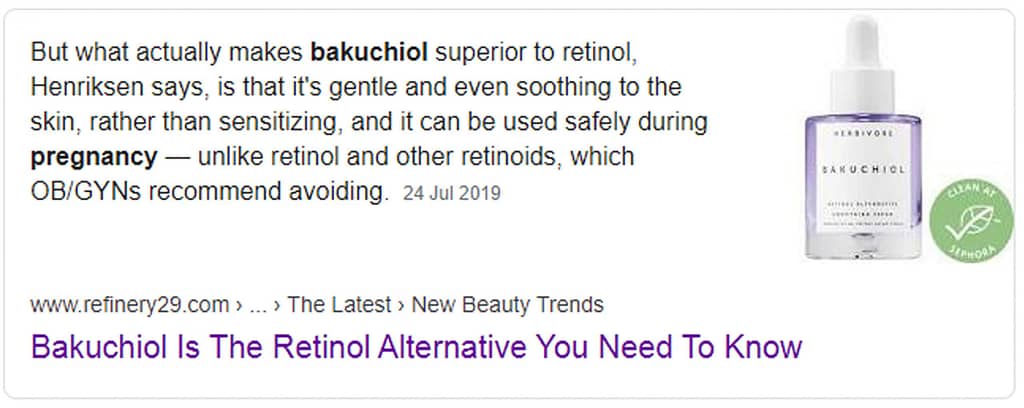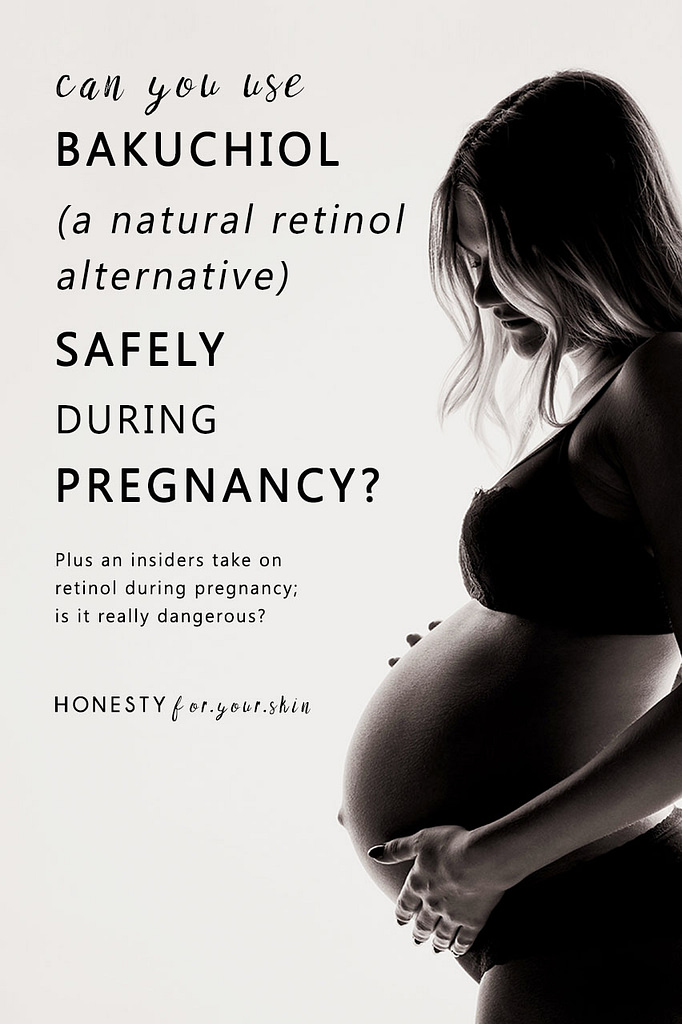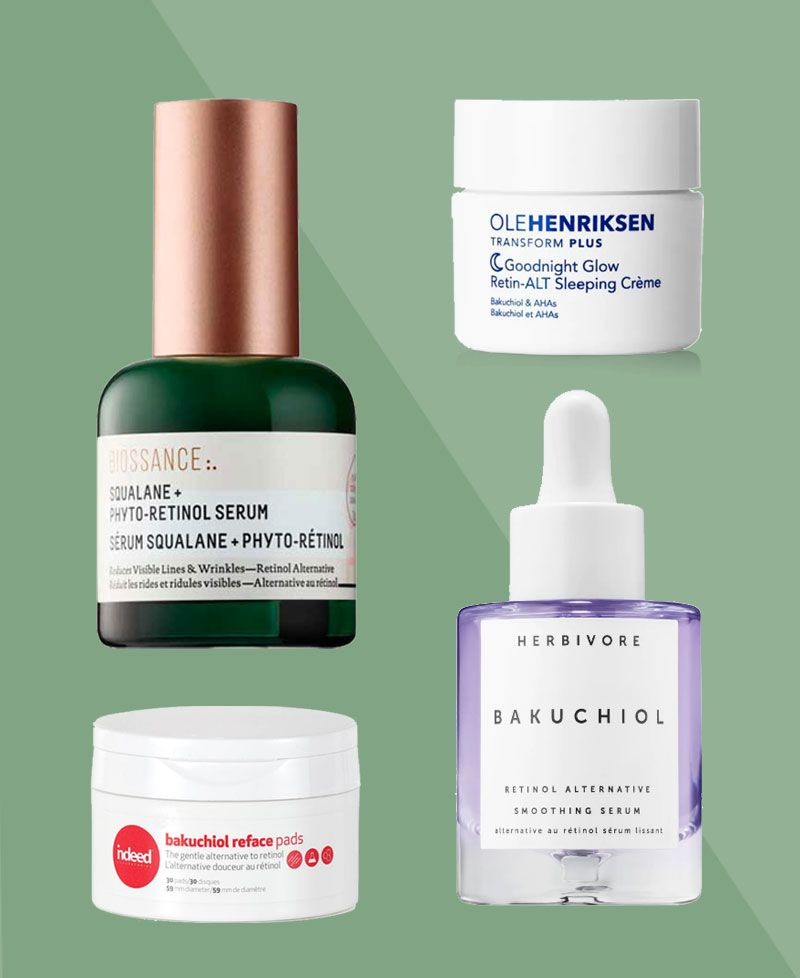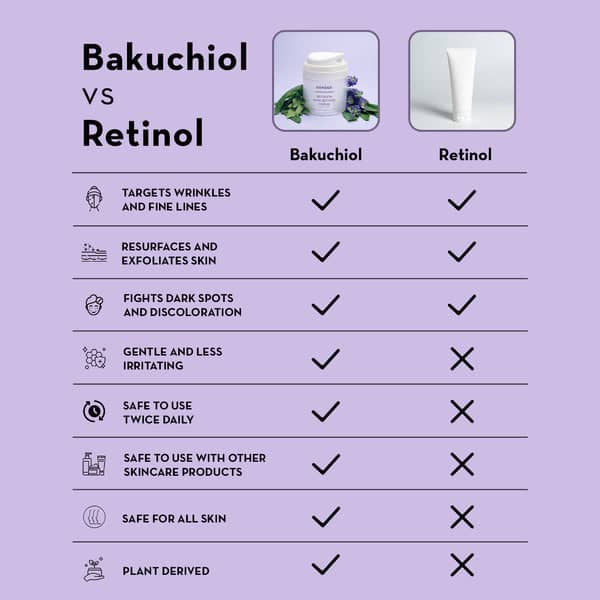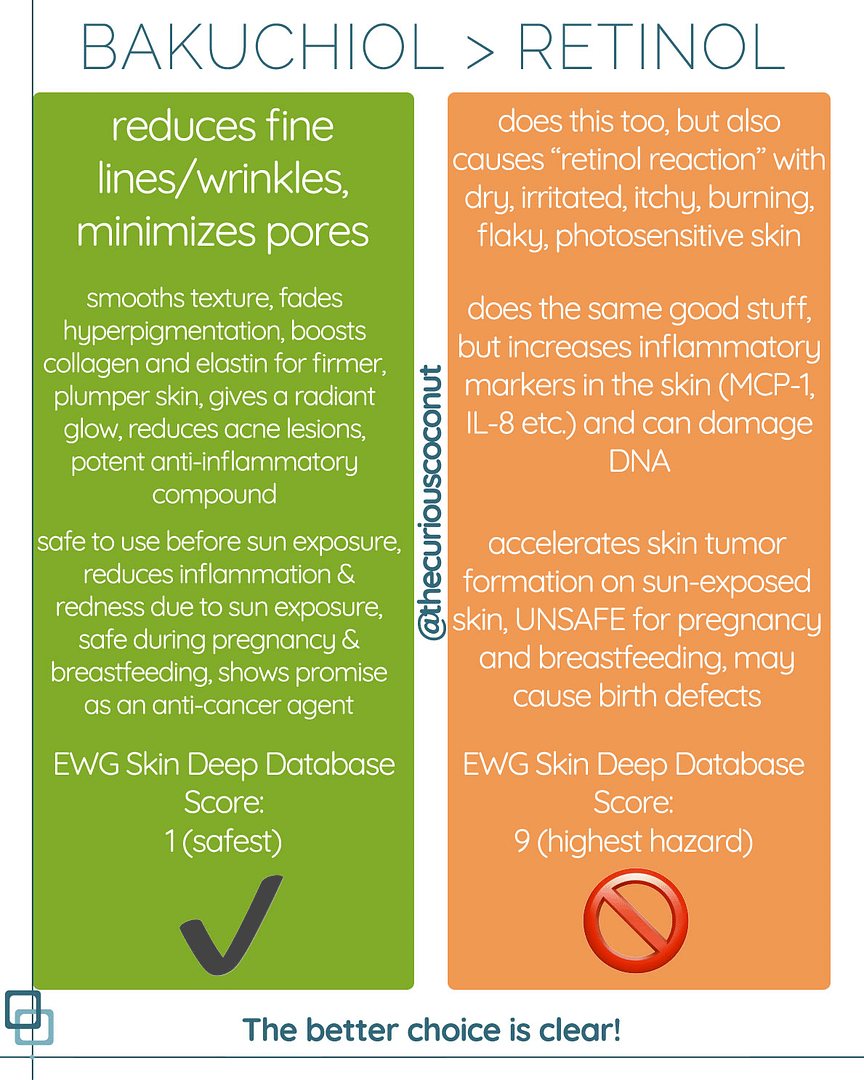
Is Bakuchiol Safe
Are you curious about the safety of bakuchiol? Look no further! In this article, we will explore the topic of bakuchiol’s safety and provide you with all the essential information you need. Whether you’re an avid skincare enthusiast or simply interested in the latest beauty trends, read on to uncover the truth about this popular ingredient.
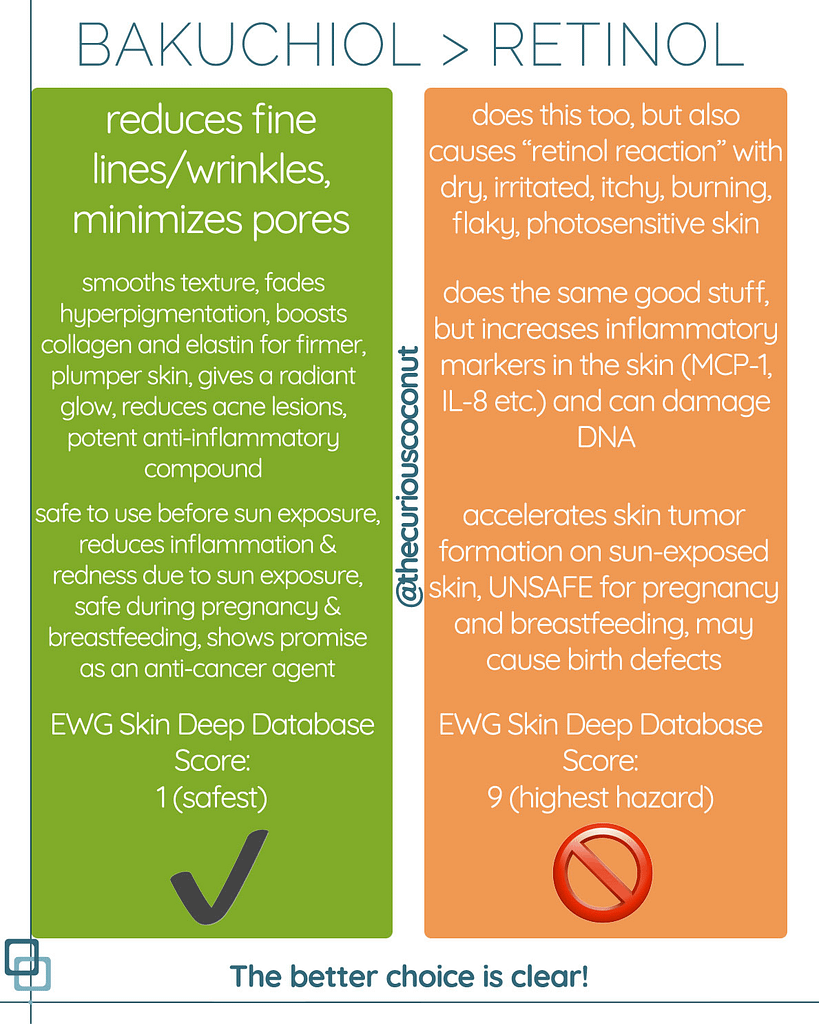
This image is property of images.squarespace-cdn.com.
What is Bakuchiol?
Bakuchiol is a natural compound that has gained significant attention in the beauty industry in recent years. It is a plant-based ingredient derived from the seeds of the Babchi plant (Psoralea corylifolia) and has been used for centuries in traditional Chinese and Ayurvedic medicine for its therapeutic properties. Bakuchiol is often referred to as a natural alternative to retinol due to its similar anti-aging effects on the skin without the potential side effects associated with retinol.
Scientific Research on Bakuchiol
Skin Benefits of Bakuchiol
Numerous scientific studies have focused on exploring the potential skin benefits of bakuchiol. One of the significant advantages of using bakuchiol is its ability to stimulate collagen production in the skin. Collagen is a protein responsible for maintaining the structure and elasticity of the skin, and its degradation leads to the appearance of fine lines and wrinkles. Bakuchiol has been shown to promote collagen synthesis, resulting in smoother and firmer skin.
Additionally, bakuchiol possesses antioxidant properties, which help protect the skin against damage caused by free radicals. Free radicals are unstable molecules that can cause premature aging and contribute to skin conditions such as hyperpigmentation. The antioxidant activity of bakuchiol helps neutralize these free radicals, preventing their harmful effects and promoting a more youthful complexion.
Furthermore, bakuchiol has demonstrated its ability to enhance the skin’s barrier function. The skin’s barrier acts as a protective layer, preventing excessive moisture loss and shielding against harmful environmental factors. By strengthening the skin’s barrier, bakuchiol helps maintain hydration levels, reduce dryness, and protect against external pollutants.
Safety Studies on Bakuchiol
In addition to studying the benefits of bakuchiol, researchers have also conducted safety studies to assess its potential side effects and determine its suitability for use in skincare products. These studies have consistently shown that bakuchiol is well-tolerated by the skin and has a low risk of causing adverse reactions.
This image is property of www.honestyforyourskin.co.uk.
Potential Side Effects of Bakuchiol
While bakuchiol is generally regarded as safe, it is essential to be aware of potential side effects that may occur in some individuals. These side effects are relatively rare, but it is important to consider them before incorporating bakuchiol into your skincare routine.
Skin Irritation
Skin irritation is the most common side effect associated with the use of bakuchiol. Some individuals may experience redness, itching, or a burning sensation when first using products containing bakuchiol. This sensitivity is usually mild and temporary, subsiding after the skin has acclimated to the ingredient. It is recommended to perform a patch test before using any bakuchiol product to determine if your skin is sensitive to it.
Allergic Reactions
Although extremely rare, allergic reactions to bakuchiol can occur in individuals with known sensitivities or allergies to similar compounds. If you have a history of allergic reactions to plant-based ingredients or have had adverse reactions to other skincare products in the past, it is advisable to consult a dermatologist before using bakuchiol.
Photosensitivity
Some preliminary studies suggest that bakuchiol may increase the skin’s sensitivity to sunlight. This means that individuals using bakuchiol should take extra precautions to protect themselves from harmful UV rays by applying sunscreen and limiting sun exposure. However, further research is needed to fully understand the extent of bakuchiol’s photosensitizing effects.
Comparison with Retinol
Retinol, a derivative of vitamin A, is a widely recognized and extensively studied ingredient renowned for its anti-aging properties. While both bakuchiol and retinol exhibit similar effects on the skin, there are important differences between the two.
One significant difference is that retinol has a higher risk of causing skin irritation and other side effects, such as dryness and peeling, especially during the initial stages of use. On the other hand, bakuchiol has a lower risk of irritation, making it a more accessible option for individuals with sensitive skin.
Another advantage of bakuchiol over retinol is its compatibility with pregnancy and breastfeeding. Retinol is generally not recommended for use by pregnant or breastfeeding individuals due to potential risks to the developing fetus or nursing infant. Bakuchiol, on the other hand, is considered safe for use during these periods, providing a safer alternative for those seeking anti-aging benefits.
This image is property of www.honestyforyourskin.co.uk.
Dermatologists’ Opinion on Bakuchiol
Dermatologists generally view bakuchiol as a safe and effective option for individuals looking to improve their skin’s appearance and combat signs of aging. Many dermatologists recommend bakuchiol as an alternative to retinol, particularly for those with sensitive skin or women who are pregnant or breastfeeding.
However, it is essential to consult with a dermatologist before incorporating bakuchiol into your skincare routine, especially if you have preexisting skin conditions or are using other medications or treatments. A dermatologist can provide personalized advice based on your specific needs and guide you on the appropriate use of bakuchiol.
Pregnancy and Breastfeeding
As mentioned earlier, bakuchiol is considered safe for use during pregnancy and breastfeeding. This is a significant advantage, as many individuals are concerned about the potential risks associated with using skincare products that contain retinol during these periods.
Retinol has been associated with an increased risk of birth defects when used excessively during pregnancy. While the risk of these effects is relatively low with topical use, some individuals prefer to avoid retinol altogether during pregnancy and breastfeeding. Bakuchiol offers a natural alternative that provides similar benefits without the potential risks associated with retinol.
This image is property of pregnantchicken.com.
Proper Application and Usage
To ensure the safe and effective use of bakuchiol, it is important to follow a few guidelines.
Patch Testing
Before using any skincare product containing bakuchiol, it is advisable to perform a patch test. This involves applying a small amount of the product to a small area of skin, such as the inner forearm, and monitoring the area for any signs of irritation or allergic reactions. If no adverse reactions occur within 24-48 hours, it is generally safe to proceed with using the product as directed.
Gradual Introduction
When introducing bakuchiol into your skincare routine, it is recommended to start with a lower concentration and gradually increase over time. This allows your skin to acclimate to the ingredient and reduces the likelihood of experiencing any side effects. Begin by using products with a lower percentage of bakuchiol, then gradually switch to higher concentrations as your skin adjusts.
Consulting a Dermatologist
If you have any concerns or questions regarding the use of bakuchiol, it is always best to consult a dermatologist. They can provide personalized advice based on your skin type, condition, and any existing medications or treatments you may be undergoing. A dermatologist can help devise a suitable skincare routine that incorporates bakuchiol and address any specific concerns you may have.
Quality and Source of Bakuchiol Products
When purchasing skincare products containing bakuchiol, it is important to ensure their quality and source. Look for reputable brands that prioritize transparency and have a good track record. Check for the presence of third-party certifications or verifications that verify the purity and authenticity of the bakuchiol used in their products.
Furthermore, opt for products that use sustainable and responsibly sourced bakuchiol to support ethical practices and minimize environmental impact. Many brands now offer vegan, cruelty-free, and organic options for conscious consumers.
This image is property of cdn.shopify.com.
Regulatory Approval and Safety Standards
As the popularity of bakuchiol increases, regulatory agencies have begun to establish safety standards and guidelines for the use of this ingredient in skincare products. In many regions, bakuchiol has been deemed safe for use in cosmetic formulations, though specific regulations may vary.
Look for products that comply with the applicable regulatory standards in your country or region. These standards ensure that the bakuchiol products you use have undergone rigorous testing for safety and efficacy.
Conclusion
Bakuchiol has emerged as a promising natural alternative to retinol, offering similar anti-aging benefits for the skin without the potential side effects. Scientific research supports the efficacy and safety of bakuchiol, making it an attractive option for individuals seeking to improve their skin’s appearance and combat signs of aging.
While bakuchiol is generally well-tolerated, it is essential to be aware of potential side effects such as skin irritation, allergic reactions, and photosensitivity. Consulting a dermatologist and following proper application and usage guidelines can help ensure a positive and safe experience with bakuchiol.
As with any skincare ingredient, the quality and source of bakuchiol products are crucial. Choose reputable brands that prioritize transparency, sustainability, and adhere to regulatory standards. By incorporating bakuchiol into your skincare routine responsibly, you can harness its natural goodness and enjoy a more youthful and radiant complexion.
